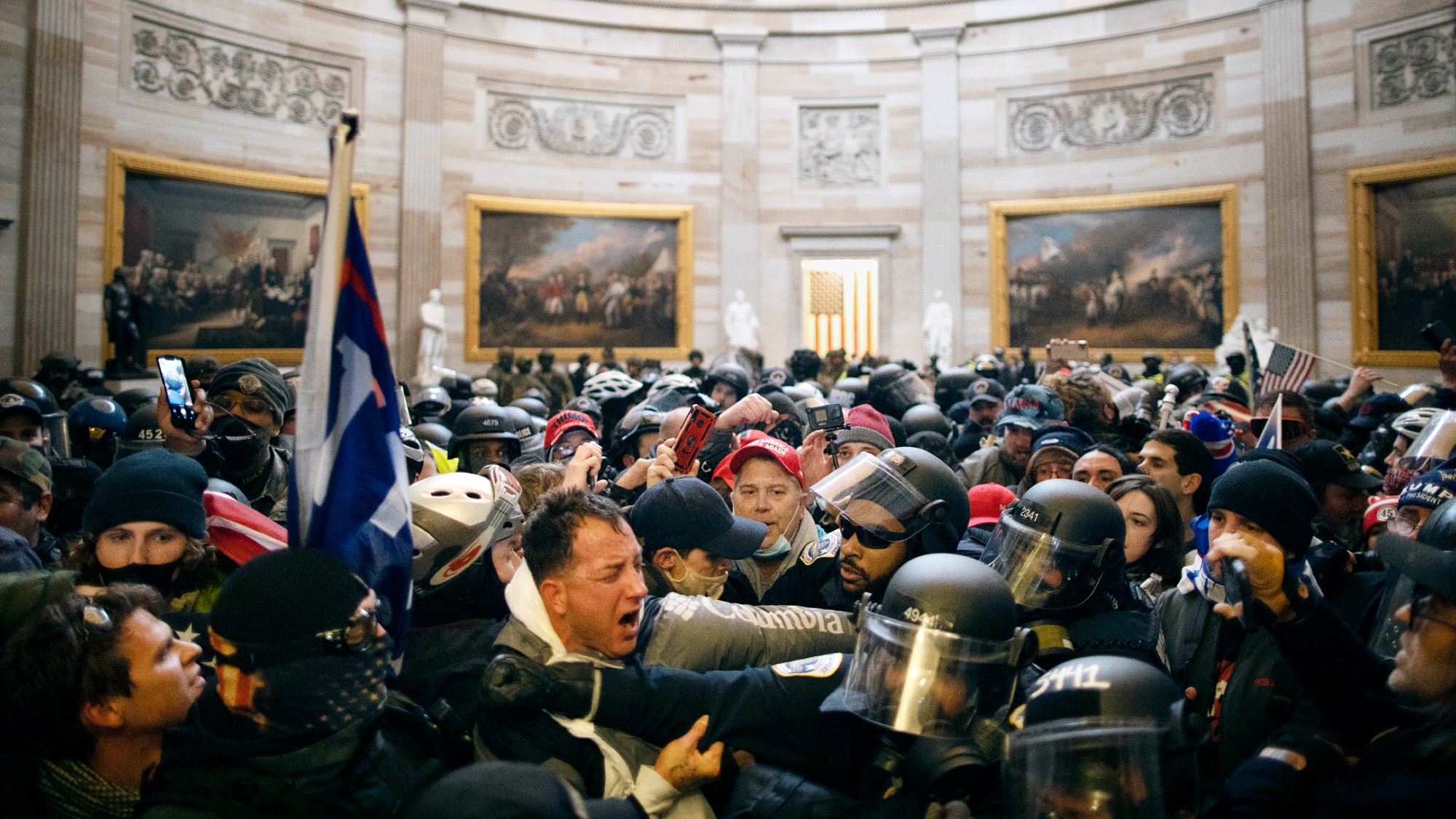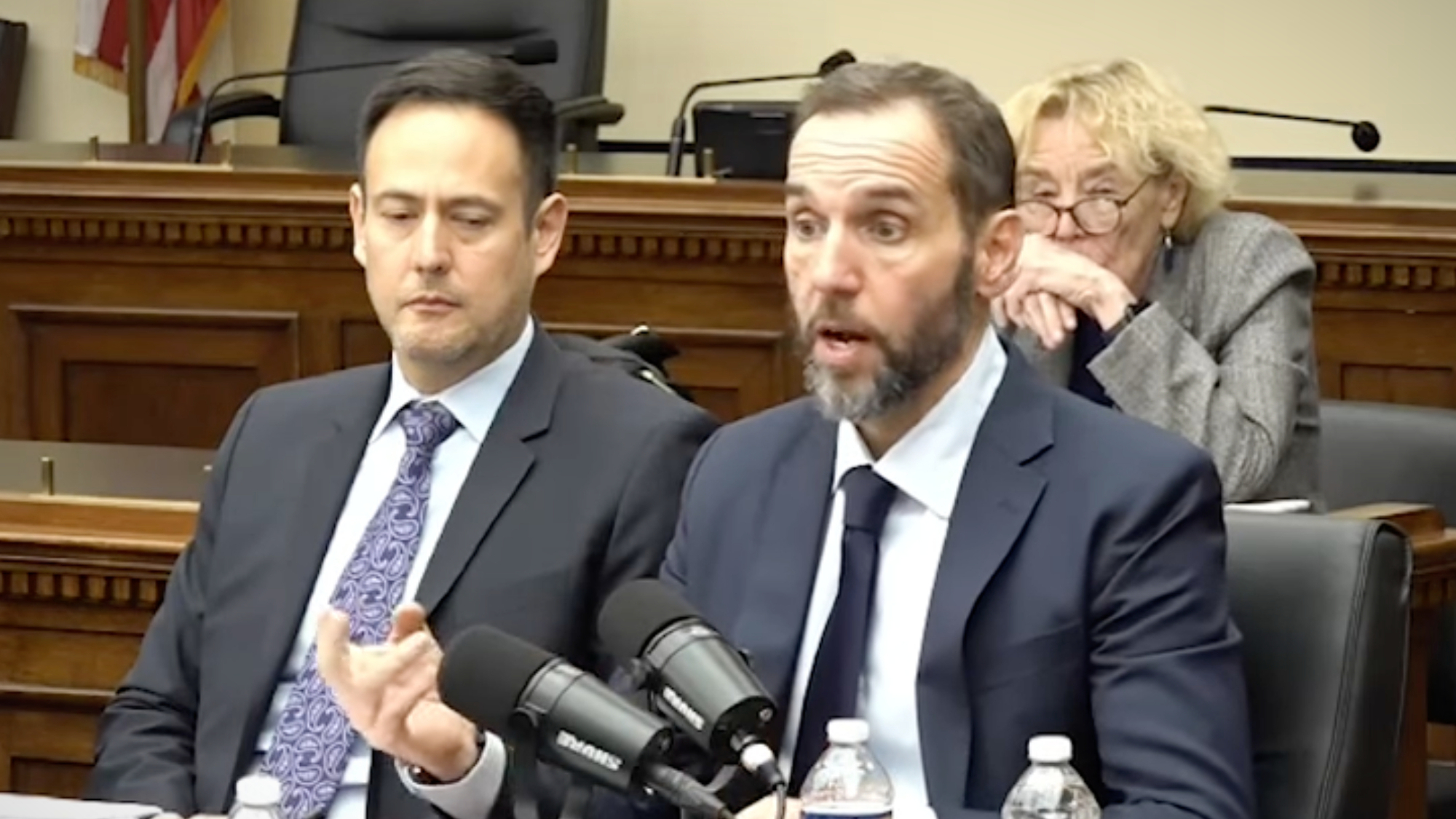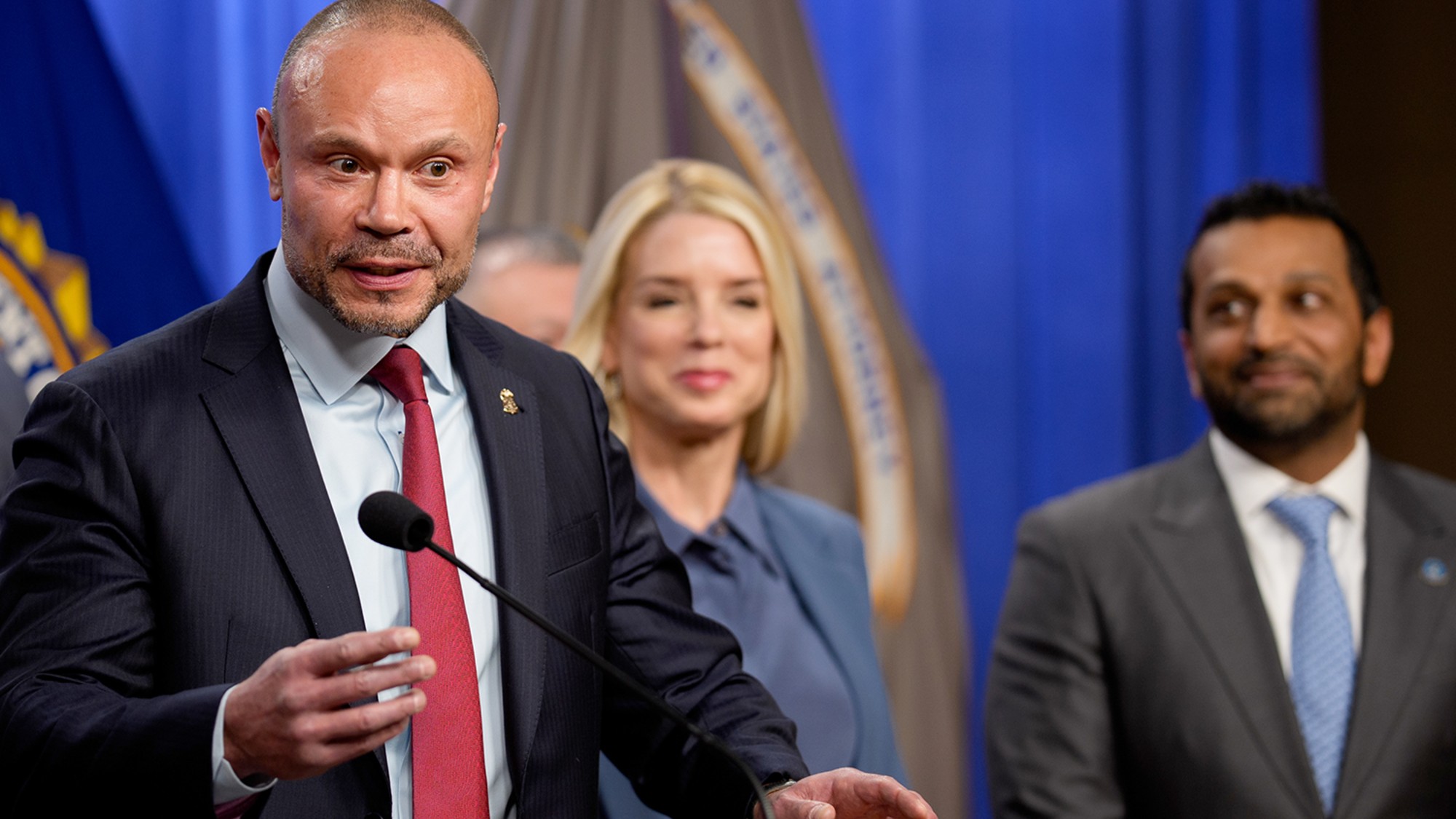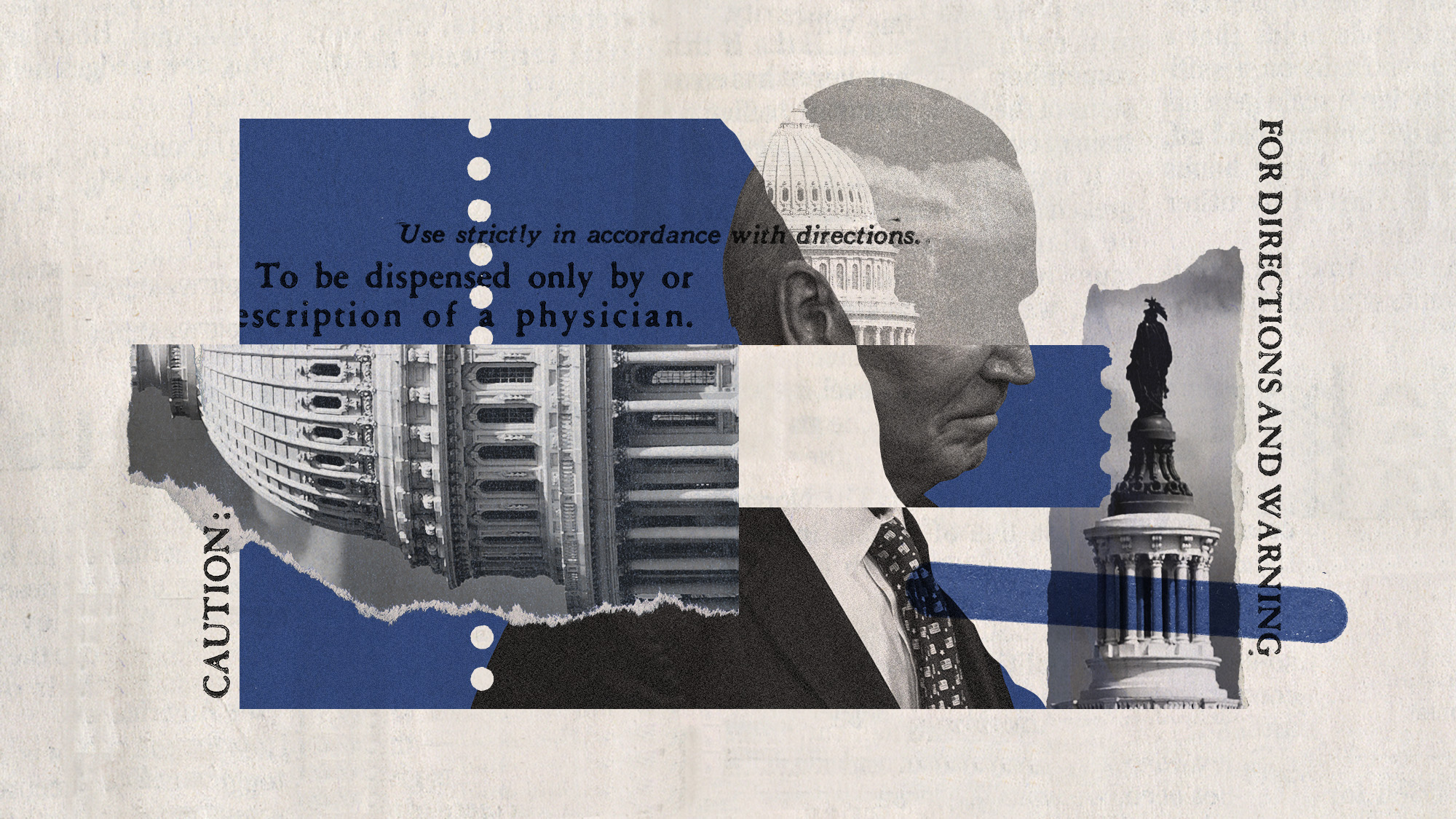Could the 14th Amendment be Trump's undoing?
How a post-Civil War amendment against insurrectionists could disqualify Trump


A free daily email with the biggest news stories of the day – and the best features from TheWeek.com
You are now subscribed
Your newsletter sign-up was successful
A Florida tax attorney, Lawrence Caplan, is challenging former President Donald Trump's eligibility to run for the White House again, arguing that Section 3 of the Constitution's 14th Amendment bars him from holding public office. The amendment, adopted after the Civil War, disqualifies anyone who has "engaged in insurrection or rebellion" or given "aid or comfort" to anyone who did. Caplan argues that's exactly what Trump did when he stirred up the mob of his supporters that attacked the Capitol on Jan. 6, 2021, The Hill reported.
And he's not alone. Two prominent conservative legal scholars — law professors William Baude of the University of Chicago and Michael Stokes Paulsen of the University of St. Thomas, both members of the conservative Federalist Society — wrote in a recent University of Pennsylvania Law Review article that the Disqualification Clause definitely applies to Trump and many others who participated in or encouraged the storming of the Capitol in an attempt to prevent the certification of Trump's 2020 election loss.
Democrats have long argued that Trump and some Republican lawmakers, including Rep. Marjorie Taylor Greene and former Rep. Madison Cawthorn, should be barred from holding office over their actions on Jan. 6. Trump's campaign shrugged off the new lawsuit, saying it had "no basis in fact or law" and would be promptly dismissed. But now that conservative legal experts are making the same argument as some Democrats, could the 14th Amendment derail Trump's attempt to return to the White House in the 2024 election?
The Week
Escape your echo chamber. Get the facts behind the news, plus analysis from multiple perspectives.

Sign up for The Week's Free Newsletters
From our morning news briefing to a weekly Good News Newsletter, get the best of The Week delivered directly to your inbox.
From our morning news briefing to a weekly Good News Newsletter, get the best of The Week delivered directly to your inbox.
What the commentators said
Trump undeniably "meets the standard" of the 14th Amendment, said Donald K. Sherman at The Hill. "All three branches of the government have identified the attack on the Capitol as an insurrection," and federal judges, House and Senate majorities, and the bipartisan House Jan. 6 committee have identified "Trump as its central cause." As Baude and Paulsen, the conservative scholars, note, Trump doesn't have to be convicted of treason or any other crime to be barred from seeking office. State and federal election officials can make the call on their own. A New Mexico county commissioner has already been booted from public life for recruiting Jan. 6 insurrectionists. Trump is next.
Sorry, but the 14th Amendment doesn't apply to Trump or any of the Jan. 6 rioters, said Alan Dershowitz in the Alan Dershowitz Newsletter. The "text and history" of the 14th Amendment make it clear the "disability provision was intended to apply to those who served in the Confederacy during the Civil War." It was never supposed to empower "one party to disqualify the leading candidate of the other party in any future elections." Determining who had sided with the Confederacy was easy, but there's "no formal mechanism" for disqualifying somebody now. We would be left with some states striking Trump from the ballot and others leaving him on, which would trigger "a constitutional crisis" and open the door for Republican states to disqualify candidates who supported rebellious riots over, say, the killing of George Floyd.
Baude and Paulsen rightly point out that Section 3 of the 14th Amendment "did not lapse with the passing of the generation of Confederate rebels, whose treasonous designs for the country inspired the provision," said former federal appellate judge J. Michael Luttig and Harvard constitutional law professor emeritus Laurence H. Tribe in The Atlantic. The "post-Civil War Framers presciently foresaw" that it would never outlive the purpose it was intended to serve. "To the contrary, this provision of our Constitution continues to protect the republic from those bent on its dissolution." Any official who has taken an oath to uphold the Constitution is "obligated to enforce" the disqualification clause. This part of the Constitution is worth defending like any other.
What next?
Secretaries of state can simply refuse to print Trump's name on their ballots, and they're indicating that they have heard the arguments for applying the 14th Amendment "loud and clear," said Jennifer Rubin in The Washington Post. Michigan Secretary of State Jocelyn Benson (D) has indicated she will discuss the question with her counterparts in Georgia, Nevada, and Pennsylvania. "But she smartly recognized that whatever she and other secretaries decide, the issue will undoubtedly travel to the Supreme Court for a final determination." There's a risk that "the hyperpartisan Supreme Court will ride to Trump's rescue," ignoring the amendment's text to keep Trump on the ballot. Primary voters can prevent that ugly scenario by nominating someone else.
A free daily email with the biggest news stories of the day – and the best features from TheWeek.com
"If GOP primary voters put Trump on the 2024 presidential ballot, the American majority is going to have to beat him at the polls," said David Frum in The Atlantic. "The good news is that a consistent majority" of U.S. voters is resolutely anti-Trump. The bad news is that the anti-Trump majority is narrow and "disfavored by the Electoral College." But it's time to stop wishing for the 14th Amendment to become an "anti-Trump magic wand." That's "an unfeasible, unhelpful fantasy. Let it go."
Harold Maass is a contributing editor at The Week. He has been writing for The Week since the 2001 debut of the U.S. print edition and served as editor of TheWeek.com when it launched in 2008. Harold started his career as a newspaper reporter in South Florida and Haiti. He has previously worked for a variety of news outlets, including The Miami Herald, ABC News and Fox News, and for several years wrote a daily roundup of financial news for The Week and Yahoo Finance.
-
 Political cartoons for February 21
Political cartoons for February 21Cartoons Saturday’s political cartoons include consequences, secrets, and more
-
 Crisis in Cuba: a ‘golden opportunity’ for Washington?
Crisis in Cuba: a ‘golden opportunity’ for Washington?Talking Point The Trump administration is applying the pressure, and with Latin America swinging to the right, Havana is becoming more ‘politically isolated’
-
 5 thoroughly redacted cartoons about Pam Bondi protecting predators
5 thoroughly redacted cartoons about Pam Bondi protecting predatorsCartoons Artists take on the real victim, types of protection, and more
-
 Jan. 6: Ultimately a success?
Jan. 6: Ultimately a success?Feature The White House website offers a revisionist history of the Jan. 6 coup attempt
-
 Jack Smith: Trump ‘caused’ Jan. 6 riot
Jack Smith: Trump ‘caused’ Jan. 6 riotSpeed Read
-
 Pipe bombs: The end of a conspiracy theory?
Pipe bombs: The end of a conspiracy theory?Feature Despite Bongino and Bondi’s attempt at truth-telling, the MAGAverse is still convinced the Deep State is responsible
-
 Could Trump run for a third term?
Could Trump run for a third term?The Explainer Constitutional amendment limits US presidents to two terms, but Trump diehards claim there is a loophole
-
 Democrats grapple with Biden cover-up fallout ahead of 2028
Democrats grapple with Biden cover-up fallout ahead of 2028IN THE SPOTLIGHT Even before his cancer diagnosis, Dems have been grappling with whether the White House's alleged effort to hide Biden's failing health is worth relitigating
-
 Trump DOJ said to pay $5M to family of Jan. 6 rioter
Trump DOJ said to pay $5M to family of Jan. 6 rioterspeed read The US will pay a hefty sum to the family of Capitol rioter Ashli Babbitt, who was fatally shot on January 6
-
 Kamala Harris steps back on center stage
Kamala Harris steps back on center stageIN THE SPOTLIGHT In her first major speech since Donald Trump took office, the former presidential candidate took solid aim at this administration as speculation grows about her future
-
 77 things Donald Trump has said about women
77 things Donald Trump has said about womenIn Depth The president has a long history of controversial remarks about the opposite sex
